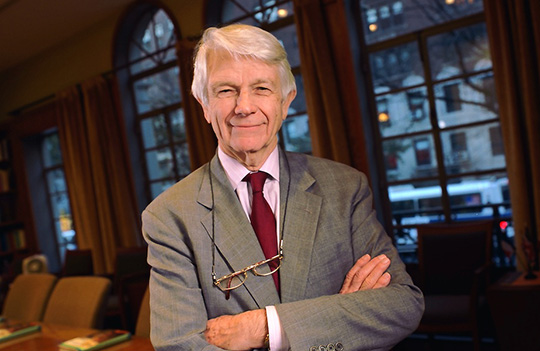
As we celebrate the 50th anniversary of the National Institute on Aging (NIA), it is fitting to reflect on the remarkable contributions of the late Robert N. Butler, M.D., a trailblazer who paved the way for practitioners and researchers in the field of aging. His innovative ideas led to the creation of our Aging Employment Porfolio, which our office launched in May 2024 in commemoration of Older Americans Month.
Dr. Butler was an American physician, gerontologist, psychiatrist, and author. His groundbreaking work has had a profound impact on how we perceive and address ageism, a term he coined in 1969. This celebration of the NIA’s 50th anniversary offers an opportune moment to honor Dr. Butler’s enduring legacy as well as his pivotal role in shaping the field of aging.
In 1976, Dr. Butler became the founding director of the NIA, where he established the first geriatric medicine program in the United States, laying the foundation for transformative advancements in geriatric medicine and research.
One year earlier, in 1975, Dr. Butler published his Pulitzer Prize-winning book, “Why Survive? Being Old in America.” Dr. Butler’s book remained on the the New York Times best-seller list for weeks because it combined a scholarly analysis of the current state of scientific knowledge about aging with a political strategy and appeal to the issue of ageism. The book addressed the pervasive impact of ageism on individuals, highlighting how it causes people to dread and fear getting older, and Dr. Butler called for a societal shift in attitudes toward aging.
In 1982, Dr. Butler founded the first academic geriatrics department in a United States medical school at Mount Sinai Medical Center, where he served as the Chair of the Department of Geriatrics and Adult Development. Dr. Butler's leadership in initiating research projects aimed at changing attitudes and practices solidified his legacy as a pioneering figure in the fight against ageism. He emphasized that ageism affects everyone and encouraged individuals to combat it as well as the fear of mental and physical decline that often accompanies it.
In 1990, Dr. Butler became the Founding President and Chief Executive Officer of the International Longevity Center, now housed at the Robert N. Butler Columbia Aging Center at Columbia University. His establishment of this center underscored his commitment to advancing research, policy, and advocacy focused on promoting the well-being and dignity of older adults and further amplifying the impact of his lifelong work.
This month, as we celebrate the 50th anniversary of the NIA and Older Americans Month, please join me in celebrating the life and achievements of Dr. Butler, whose contributions will be forever remembered. It is also an ideal time to reflect on the stereotypes, prejudices, and discriminatory beliefs that may exist within each of us intentionally or unintentionally about the aging population. Let us draw inspiration from Dr. Butler’s work and commit to fostering a culture of respect and empowerment for older adults by ensuring that our workplaces and communities are welcoming and supportive for everyone. In the meantime, please read The Arduousness in Proving Age Discrimination and Title VII Q&A: Age Discrimination.
If you feel discrimination or harassment has occurred, please contact the NIH Office of Equity, Diversity, and Inclusion or the NIH Civil Program.
Do you have a story idea for us? Do you want to submit a guest blog? If it's about equity, diversity, or inclusion, please submit to edi.stories@nih.gov.
For news, updates, and videos, subscribe or follow EDI on LinkedIn, X, Blog, and YouTube.






